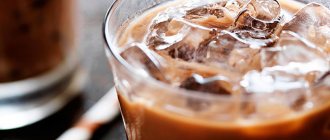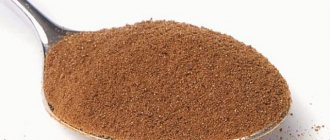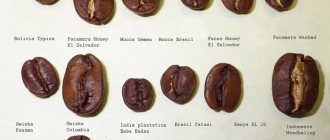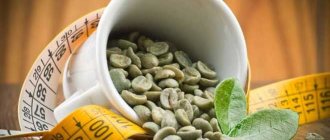The real recipe is that coffee is believed to increase blood pressure. But this is not true, this is a myth that has existed for a very long time.
In most cases, people with high blood pressure or after a heart attack can drink coffee without any health risks. But people with tachycardia (rapid heartbeat) still need to control the consumption of this strong drink.
If you drink four cups a day, drinking the fifth cup will not make you worse. More important than the amount of coffee you drink is the quality of its processing and the antioxidant your body receives.
Caffeine
Caffeine is a natural substance found in dozens of plants, including coffee beans. People prefer to consume caffeine because it triggers the body's central nervous system.
This jump makes you feel more alert and ready to tackle everything from questioning children to presenting a case in court. For this reason, some people call caffeine their “elixir of life.”
There are many unpleasant side effects from too much caffeine: insomnia, high blood pressure, anxiety and addiction, to name a few. One of the side effects of drinking more than 400 mg of caffeine per day can also be dehydration because coffee is a diuretic.
How coffee affects the body
23.06.2018
Starting the day with a cup of coffee is a real pleasure!
But there have been a lot of horror stories around this drink for a long time. Some doctors say that it is harmful, others idolize its benefits. Where is the truth here?
It’s all about the amount of coffee you drink, and not only that, because the main energy booster is caffeine
also found in green tea and cocoa.
A large amount of it will not bring benefit, but harm to the body. Let's look together at the effects on the body, as well as the pros and cons
of this beloved drink.
As mentioned above, coffee invigorates due to the caffeine it contains. Once in the body, it acts in three directions:
In the brain and other organs, caffeine interferes with adenosine receptors, thereby preventing this substance from entering the blood. Adenosine is a hormone that causes drowsiness and reduces nervous agitation. How coffee suppresses fatigue
, increases concentration and reaction speed.
Stimulates the release of adrenaline, a hormone that increases heart rate, thereby increasing blood pressure and stimulating the flow of glucose into the blood.
Increases dopamine levels. This substance is responsible for happiness. It is because of this property of caffeine that addiction occurs.
We said that everything is good in moderation. And this measure is 300 mg
- three medium cups of strong coffee.
For many adults, this is a safe amount
of caffeine per day. But don’t forget that in addition to coffee itself, caffeine is also found in other products!
Pros of an invigorating drink:
1.
Improves performance and mood. Helps people with depression.
2.
Coffee helps with headaches
3.
It contains macro and microelements
4.
Boosts immunity
5.
Protects against caries
6.
Improves memory
7.
Reduces the risk of cardiovascular disease, especially in women
8.
Stimulates fat burning during weight loss
There are also some disadvantages:
1.
Coffee is highly addictive, comparable to nicotine and drug addiction.
2.
A person who is accustomed to drinking a lot of coffee will feel weak and drowsy without it.
3.
Excessive coffee consumption leads to the development of arrhythmia
4.
Coffee can cause heartburn
5.
Drinking coffee significantly increases blood cholesterol levels
6.
This drink dehydrates the body
7.
It can cause yellow plaque to appear on teeth, as it is a strong dye.
As you can see, everything is good in moderation! Coffee certainly has many beneficial properties.
and it helps you wake up in the morning. But do not forget about the norms of use and possible risks.
Is coffee a diuretic?
A diuretic is a substance that increases the need to urinate. Naturally, water is a diuretic, along with coffee and any other caffeinated drinks such as soda.
Research (dating back to 1928 and again in 2005) shows that caffeine is a weak diuretic. The human body will adapt to regular caffeine consumption after 4-5 days and you will no longer urinate excessively.
This means that regular caffeine consumption does not lead to chronic dehydration . Coffee may be a diuretic at first, but these effects wear off quickly.
Lawrence Armstrong, a professor in the department of kinesiology at the University of Connecticut and director of the Human Performance Laboratory, said that if you drink more fluids of any kind, the amount of urine you produce will increase. "If you drink a liter of water, [urination] will increase...and that doesn't mean you shouldn't drink water."
A study conducted in 1928 tested three people whose urine was compared before and after caffeine. After two months without caffeine, subjects received half a milligram of caffeine. The amount of urine produced was "noticeable" after they received caffeine.
When taking caffeine regularly, patients had less noticeable urine loss after 4-5 days. Armstrong and several other researchers conducted an updated study in 2005. This study involved a wider range of subjects over an 11-day period, and confirmed the results of the 1928 study.
Causes of thirst after drinking coffee
According to the observations of experts, there are many reasons for thirst after drinking a drink.
- Especially in hot countries, coffee dehydrates the body due to its diuretic properties. This negatively affects well-being, the condition of the mucous membranes, and skin tissue. That’s why the custom arose there to serve a glass of cool water with espresso. This results in relief from the condition.
- A rich drink made from natural coffee beans can have a bright taste with a slight sourness. To dilute it a little, it is advisable to alternate drinking espresso with cool water. Then the feeling of thirst will not appear in the future.
- When a barista serves water along with a drink in a cafe, do not ignore the offer. After enjoying a cup of coffee, it won't hurt to drink water to protect your tooth enamel from yellow plaque.
- Natural beans contain most of the caffeine. If you drink double espresso, drink it with water. Then there will be no problems with the nervous and vascular system, and the heart will not receive excessive stress. Even concentrated coffee removes liquid, drink water to avoid dehydration.
Drinking the drink with water has been found to reduce appetite, resulting in weight loss.
Cutting down on caffeine may hurt more than it helps.
Some people feel the need to reduce the amount of caffeine they drink. Commitment to limit caffeine consumption forever; Reducing your coffee intake over a short period of time can lead to dehydration. As mentioned earlier, your body adapts to caffeine consumption after a few days.
If you reduce the amount of caffeine you drink over a short period of time, your body will have to begin the process of adapting to caffeine-related habits as you start drinking more.
The rebound between the amount of caffeine you take is more harmful than a regular daily or even weekly amount.
Mild diarrhea, but not necessarily dehydration
According to the scientist, if you drink only these two drinks, you will be overwhelmed with caffeine. In large doses - approximately 5 cups of coffee per day - in healthy people
Caffeine can cause mild diarrhea, which means our body will increase urine production to get rid of more fluid.
But this does not necessarily indicate dehydration. Yes, the body gets rid of more fluid, but it receives even more, that is, there is no dehydration. Moreover, when the body gets used to coffee (when your one morning cup turns into three), then no more diarrhea should occur.
What are the signs of magnesium deficiency
A lack of magnesium can reduce the strength of your bones and also impair other cellular processes that require magnesium. Additionally, low magnesium levels can reduce the amount of calcium in the body.
Other signs of magnesium deficiency include:
- Overexcitement, anxiety, sleep problems, confusion.
- Rapid breathing, muscle tremors or spasms, convulsions.
- Irregular heart rate, low blood pressure.
- Poor nail growth, nausea and vomiting.
If you drink coffee and are concerned about magnesium deficiency, the simplest treatment is to eat more foods containing magnesium. Legumes, whole grains, Brazil nuts, soy flour, molasses, green leafy vegetables, almonds, pumpkin, pumpkin seeds, black walnuts and cashews are all good sources of magnesium.
Find out how much magnesium is in nuts
You can also get magnesium from peanuts, oatmeal, bran, bananas, and baked potatoes with the skin on. Magnesium supplements can also be taken to correct magnesium deficiency, but you should talk to your doctor before taking magnesium or any other supplements.
Choose a magnesium supplement on iHerb
Now Foods, Magnesium Citrate, 120 Vegetarian Capsules
Compatibility of coffee and magnesium
Coffee can affect magnesium levels in the body. When you drink coffee, magnesium absorption in the intestine is reduced. Although coffee does not directly remove magnesium from your body, decreased magnesium absorption can cause your body to gradually lose it. In turn, this can lead to magnesium deficiency.
The more coffee you drink, the less magnesium your intestines can absorb. This becomes more important as you get older. Because magnesium absorption usually decreases with age.
If you drink coffee, you may not absorb magnesium effectively, which can lead to magnesium deficiency. This can be prevented by consuming more magnesium every day. That being said, you should talk to your doctor before taking any magnesium supplements.
Confirmation: Caffeine does not cause dehydration when taken regularly
Yes, of course, one old study on 3 people cannot convince an experienced health specialist, so here is another, more recent one (conducted in 2005).
59 people were observed for 11 days to find out how caffeine affects the body's fluid loss.
First, each subject regularly took 3 mg of caffeine per 1 kg of body weight per day (about 2-3 cups of coffee). After 5 days, some of the group stopped taking caffeine completely, some at the 1 cup level, and some at the 2 cups per day level.
During the experiment, many tests and analyzes were performed on body hydration and none of the hydration analysis methods showed that regular caffeine intake caused a decrease in hydration.
By the way, modern methods for determining body hydration have made it possible to collect the so-called “hydration index of drinks” - the dependence of fluid intake and its removal from the body for different drinks in comparison with water.
As you can see from the table, caffeinated drinks (tea, coffee and cola) show similar levels of hydration as regular water or even sports drinks.
If you force people to avoid their favorite drinks under false pretexts (they contain caffeine and you will experience dehydration), this does not mean that they will drink “unloved” drinks in the same volume, which means that this technique is more likely to lead to dehydration.
Coffee may have the same properties as water
Researchers from the School of Sport and Exercise Science at the University of Birmingham compared the effects of drinking coffee with the effects of drinking water.
Their study involved 50 men who drank three to five cups of coffee daily. The study took place over three days.
On separate occasions, each participant consumed either four cups of coffee per day (200 ml each) or the same amount of water.
The data showed that there was no significant difference between drinking water and drinking coffee in many respects. This means that when men drink coffee in moderation, this drink also protects against dehydration, just like water.










